Should You Put Ads On Your Blog? The Pros & Cons of Blog Ads
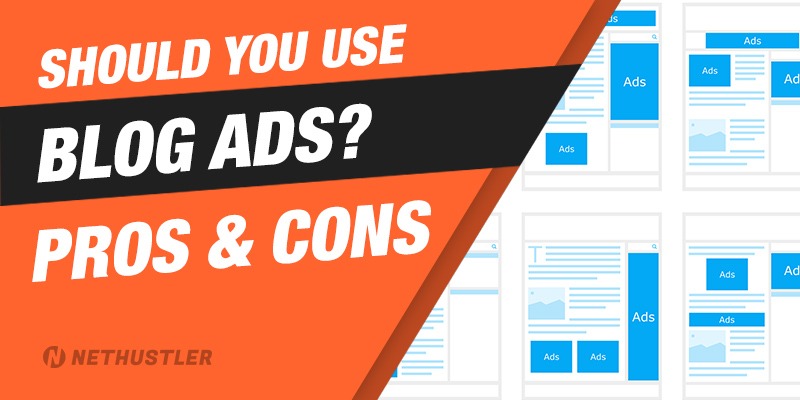
Want to know if it’s a good idea to put ads on your blog? Check out this list of PROs and CONs of blog ads to figure out if it’s a match for you.
Did you recently start a blog and don’t know when to get ads on your blog or if you should put ads on your blog?
Good news:
We’ve all been there.
It’s a moment of uncertainty for many beginner bloggers. You probably don’t even know how long it takes to make money from a blog, or if it’s even worth it to go through the “new blogger struggle” at all.
You shouldn’t be discouraged though after all most of us want to make some money from our blogs, and at the beginning, it’s a bit hard to do.
Because you basically need to give it some time to gain some traffic and some eyeballs reading your posts.
But when that starts happening, and visitors are coming to your site, it’s time to get your hustle on and make some money.
One of the first things that a new blogger thinks of is blog ads. They can just put some ads on their blog and boom instant riches.
Not quite…
Many of you are probably already familiar with Google AdSense by now, but did you know that nowadays you need to have a high-quality website or blog in order to get approved?
It’s not that easy anymore to just sign up and start making money with Google AdSense with a brand new blog that has 3-4 posts on it.
And while there are many great Google AdSense alternatives, such as Media.net and Ezoic, almost none of them will pay as much as Google.
Alright, let’s get into it:
I’m going to begin by listing some CONs and then PROs of blog ads, but also some alternatives if you don’t want to go through and monetize via ads.
The Cons of Using Blog Ads
1. They Are Intrusive
Let’s start off with this one. As I feel many bloggers and readers would actually agree that most blog ads these days are pretty intrusive.
Not only that but they are also distracting readers from well…reading and consuming the content on your blog.
The big problem is that these days ads are scarily accurate. To people that don’t know anything about cookies and retargeting pixels, that might seem weird and intrusive, and so they become a bit paranoid.
I’ll have to agree to some extent, even though I prefer to buy cheap website traffic, even I get shocked sometimes at the kind of stuff that I can use to target the right people.
2. Trust Issues
This one goes hand in hand with what I just mentioned above. When your blog ads feel too intrusive to your readers, they will lose trust in you, your content, or your blog overall.
And that can suck. And yes, it happens. And no, there’s really not that much that you can do.
I mean sure, you can disable some ad categories and advertisers that you don’t want to show up on your blog, but then again, that’s the only kind of control that you get over the ads.
Anything else, like design, wording, future advertisers, etc., are not in your control.
Plus, if you don’t get ads on your blog from well-known and solid ad networks, you run the risk of even displaying malware and scam ads to your blog’s audience. Most commonly this is found when you choose to monetize your site with pop-up or popunder ads.
You don’t want to do that. So avoid shady ad networks, and always check some reviews about them online to see if they are legit.
I’d recommend you to begin with: Google AdSense, Media.net, and Ezoic.
Apply to all of them and see which ones will approve your site. Try to have some decent traffic first like around 5-10k visitors per month before you apply, especially for Media.net and Ezoic. Google has no minimum traffic requirements.
3. Low Earnings
Here’s the deal:
You put ads on your blog, and now you can literally make money while you sleep. Only that when money starts to come in, you realize:
Oh…crap this isn’t what I expected. All those people and gurus online said I will make hundreds per day. Instead, here I am making $0.33 per day.
So what happened?
Well… you have to keep in mind that many factors will influence your earning potential from your blog ads. Such as:
- The amount of website traffic
- The GEO (country) of your blog visitors
- The niche of your blog
- Average time spent on site
- Average pages viewed / user
- The Ads format
- Ads positioning
- The Ad networks you’re using.
- The ad settings (ex: excluding certain categories or formats).
- Low ads CTR (click-through rate)
- Lack of an ads.txt file
- Users with AdBlock software
- And a ton more…
So as you can see, it’s not really an exact science, and there are many different things that can influence how much money you can make from blog ads.
Oftentimes the most common problem for low ad earnings are the locations of the users visiting your website and the niche.
4. Slow Website Speed
This one is pretty serious. It’s a fact that ads will kill your website speed. And it’s also another fact that the loading speed of your blog is a major Google ranking factor. Especially with their Core Web Vitals update.
Blog ads are heavy, sure the ads themselves got lighter over the years. But the problem is not really the ad images, but more so the ad network scripts and iframes, and tracking, and all that bloat.
You see, even Google’s own ad platform (AdSense) or their Analytics tracking code will slow down your site by quite a lot.
Funny, how that works out, this coming from the company that demands fast-loading websites from everyone if they want to have a better chance at ranking. Yet most of their products are clearly not well optimized.
So out of all the cons of using blog ads, in my opinion, this is the most significant one. Because it requires some extra work and even money to spend to get it right.
You need to invest in a fast server like getting a VPS from Vultr (Get $100 in free hosting credit), use light themes, use just a few WordPress plugins, set up a CDN and cache properly, and always be testing.
5. Changes the Aesthetics
There’s no denying that ads are ugly. They “cheapen” the look and overall design and aesthetics of your blog.
What’s the point in designing the perfect blog or buying fancy WordPress themes, if you’re going to cover them all up with ads?
Well, I for one have already made my peace with this issue. I have figured that for 30 years since the internet has gone mainstream, people are already familiar with ads.
In fact, online visitors are so familiar that they have developed what is known as banner blindness.
So I just don’t really care for this anymore. Especially since most people won’t even “see” the ads. Not to mention those who use ad blocking extensions and software.
6. Lose Readers
There are visitors out there that will simply leave your blog if they enter and see that it’s filled with ads or annoying pop-ups. It happens, and it sucks. But luckily they are in the minority.
Usually though, over time you will lose some of your more hardcore fans or blog readers. They might get sick of getting their content consumption (whether it’s text, video, or whatever), interrupted by ads.
You know how you get a bit angry when you’re favorite YouTube does a random ad shoutout in the middle of the video? Yeah, that’s kinda similar to how it feels when people are reading your blog posts as well.
Because of that, you might lose some readers from time to time. So it’s best to know a bunch of ways to promote your blog in order to get more visitors.
7. Impacts Your Conversion Rate
If you’re also trying to build an email list for your blog, having ads all around your content and in the sidebar will more than likely hurt your conversion rates.
Not to mention if you’re also trying to sell a product or service.
Usually, though most new bloggers will not have their own product yet, they will try to begin an email newsletter list. (And you should, I highly recommend you do that as soon as possible).
But the problem is that when you’re mixing that with blog ads, it’s going to be a bit hard to get email subscribers and earn a decent income from advertising.
Nevertheless, I still think that no matter how sucky or bad the conversion rate for your email list gets, you can always bump that number up via different methods, while also keeping some ads on the site.
A quick solution would be to use an exit-intent pop-up to ask your readers for their email addresses. They are already leaving the site without clicking on an ad anyway, so might as well try to get an email out of it.
But in the long run, if you want to absolutely maximize your email list growth, then yeah, you will have to shut down the ads for a while.
The PROs of Using Blog Ads
Not all is bad though.
Many internet marketing bloggers and “gurus” are advising newbies not to put ads on their blog, because of how bad they are and how ugly they make your site.
LOL.
While there are some cons to displaying ads on your site, there are also some pros that you should consider before you decide if you should monetize your blog with ads or not.
So let’s see:
1. Easy to Setup
Look, if you’re a lazy motherfucker like I (sometimes) am. Or if you’re simply a newbie or beginner blogger and internet marketer, then you would be pleased to know that putting ads on your blog is not difficult. At all.
All you have to do is apply to one of the many ad networks available, and when you’re website gets approved, you simply copy and paste a few lines of code on your website and you’re done.
Then the ads will start appearing in the places where you have inserted the ad codes (usually a few minutes later), and that’s it. You’re done. From then on, the ad platform will take care of the rest.
Except testing different ads, formats, sizes, and positions. You will have to do those manually yourself until you find a winning strategy to maximize your ad revenue.
2. Relatively Autopilot
Setting up advertising on your blog is easy. But another great benefit is that it’s also pretty much a set and forget thing.
Unless like I’ve mentioned above your earnings are low or if you want to absolutely get the most money out of your blog.
In that case, you will have to do a lot of testing and optimizing, and try different ad formats in different positions on your blog.
But even so, it’s still a pretty much auto-pilot money-making method. All you have to focus on is writing blog posts (quality content) and getting traffic.
3. No Customers
This is one of my favorite reasons why I love using ads on most of my blogs. There is no customer drama or work or support involved.
I just set the ads up, and if people click on them and buy a product or a service, it’s not my problem.
You don’t have to deal with shipping, returns, invoices, extra fees, stupid pre-sale questions, and all that crap.
Sure you might earn more money running your own online store (dropshipping sucks by the way), but the truth is that when you reach a high enough monthly figure, you’re more than likely going to have to deal with a crazy number of people.
Even if you hire support staff, you’re still going to have to deal with a ton extra.
Not with ads. They are there. You click on them, good, you’re now on your way to buy a fresh bean bag for your cat and I have made a few cents from your click.
It’s awesome.
As long as you don’t come crying back to me that your cat is not using the bean bag, I’m happy.
4. Good passive income
You can create websites in many niches, rank them, put ads on them, and then make money for years to come. Heck, at some point you can even sell them off, for 30x the money that they are making.
If you think about it from an investment opportunity, it’s kinda crazy how great this model for passive income really easy.
And I mean truly passive. Like I’ve said above: autopilot + no customers = win.
5. Can scale it up
You can easily scale things up with blog ads. All you have to do is get more website traffic.
Sure, it’s easier said than done. Especially when you’re doing SEO and relying on free traffic.
But if you buy website traffic and get into AdSense arbitrage, and do it successfully, you will be amazed at how easy it is to scale this business up (compared to other online money-making methods).
Check out my AdSense arbitrage article, to learn more, and subscribe to my email list to get notified when I drop my next course.
Alternatives to using Blog Ads
You have decided that blog ads aren’t for you? No big deal. There are a couple of alternatives that you can use to earn money from your blog, here are some of them:
1. Sell Your Own Product
You can create and sell your own product, service, or skill. Think about what you’re good at and create a digital product like an eBook, course, or app.
If digital is not your style, go ahead and create an awesome real physical product, and sell that on your blog. Or a service. SaaS is a pretty popular thing these days.
Additionally, you can also sell your time, as in becoming a consultant or doing freelance work if you know useful digital marketing skills, for example, web & graphic design, article writing, etc.
2. Affiliate Marketing
If you don’t have the skill or desire to create your own products or services, don’t worry. Luckily, you can promote products that other people have created and you can earn a nice commission every time you refer someone to buy them through your link.
This is called affiliate marketing, and there are many ways to do it successfully or unsuccessfully.
First, you will have to join one of the many affiliate networks out there, for example, CJ Affiliate. Then, apply to promote products and services that you think are related to your blog and that your audience would find useful.
After that all you have to do is copy and paste your affiliate links throughout your content and blog, and add banners, and whenever someone clicks on them and buys something you will get credited with a commission.
For example, if you have a blog about learning, education, students, etc… then you can join some of these book affiliate programs, and earn money whenever someone buys books through your affiliate links.
There are many major sites out there that are earning millions per month solely via affiliate marketing, so blog ads are not always the solution (depends on the niche really).
3. Sponsored Posts
Another great way of making money from your blog without using ads is to sell sponsored posts.
Basically, you can get paid by companies and advertisers to either write a blog post about their product or service or insert links to their website throughout one of your articles.
Most of the time they will provide you with a post that they have prepared for you, and give you a fixed sum of money to publish it on your site (for example $250).
This is a pretty good way to earn some money when you’re a beginner but also when your blog has reached some levels of notoriety when you can ask for even more money depending on your traffic volume.
4. Paid Membership
You can also put all your great content under a locked members area, where only paying members can access and view it.
This is called a membership site, and while it’s not that common anymore, it still an easy way to earn money, because you don’t have to do anything too special.
Just create awesome content that people are willing to pay a couple of bucks every month to access, and that’s it.
But you might have a bit of a hard time convincing people to subscribe to your membership site, and that’s something that you will have to take into consideration if you want to go this route.
5. Build an Email List
Yes, building an email list for affiliate marketing or selling solo ads, or putting banners inside is still a great way to make money from your site.
Even though technically you’re going to make money from your list and not from your blog, you still have gathered all those subscribers mostly from your site anyway. So it’s the same thing.
What’s great about email lists is that it acts as both a traffic method and money method all in one. You can get free traffic to your site with the push of a button (literally), and you can also get sales and make money in just the same way.
There are a lot of popular paid email newsletters these days with huge subscriber numbers. So you can even ask your readers to pay if they want to be on your awesome email list. How cool is that?
Check out these MailChimp alternatives, if you want an email marketing service that doesn’t dislike affiliate marketing for example.
Conclusion: Should you use blog ads?
Yeah, give it a go. Don’t listen or read too many negative posts on this topic. There are a number of blogs out there and “experts” who don’t recommend using blog ads, but they are full of baloney.
The point is that having ads on your blog is simply not that big of a deal, many users are already accustomed to them, and if not they are using adblocking software anyway. So you might as well keep the ads on for the folks that don’t block them.
Here’s my take on it:
I still make a good chunk of my online income from blog ads. Whether that’s directly from arbitrage or through a more passive approach like niche blogs with SEO work done.
They can bring a ton of revenue if you know how to optimize your site and content and also work with a decent ad platform like Ezoic, or Adthrive.
Are blog ads for everyone and every site out there?
Nope.
They aren’t and that’s the truth. Some niches and sites with visitors from low-tier countries will get horrible RPM (revenue per thousand impressions) because the overall CPC (cost per click) is too low.
This simply translates into: You’re not going to make a lot of money if you have a site about free books or apps with a large part of your visitors coming from Somalia for example.
Try them out for a while. See how the ads on your blog perform. How much money you’re making, and how bad the website speed gets.
Also, monitor your conversion rate if you’re also building an email list or selling/promoting something else. It might go down, or it might not even change.
This is basically the whole digital marketing experience in a nutshell: Try Shit Out. See what sticks and what doesn’t. And stop following and listening to everyone online. Do lots of tests, and build from there.
Until next time,
Stay hustlin’
Stephen

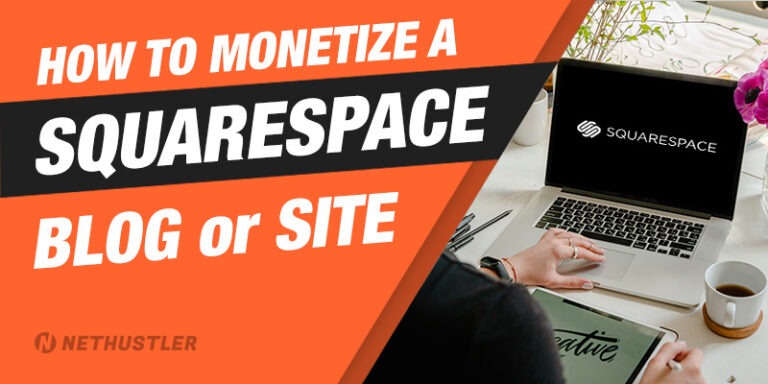
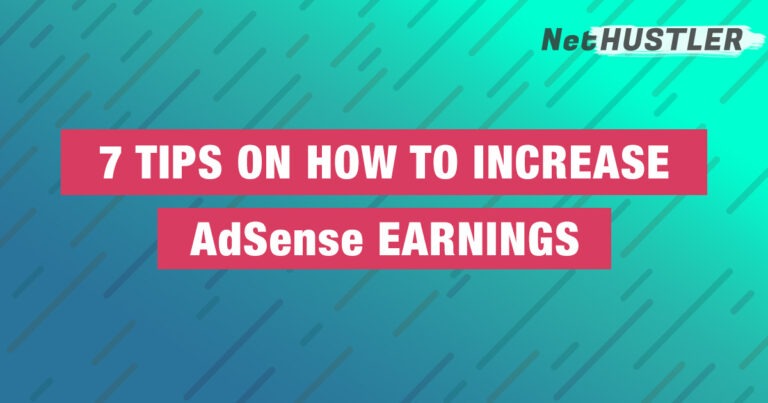
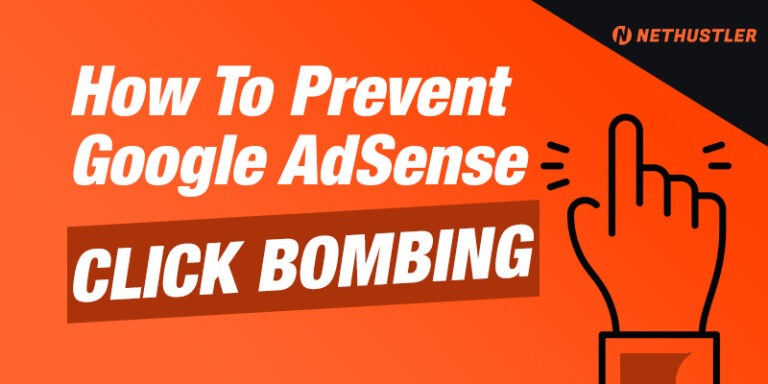
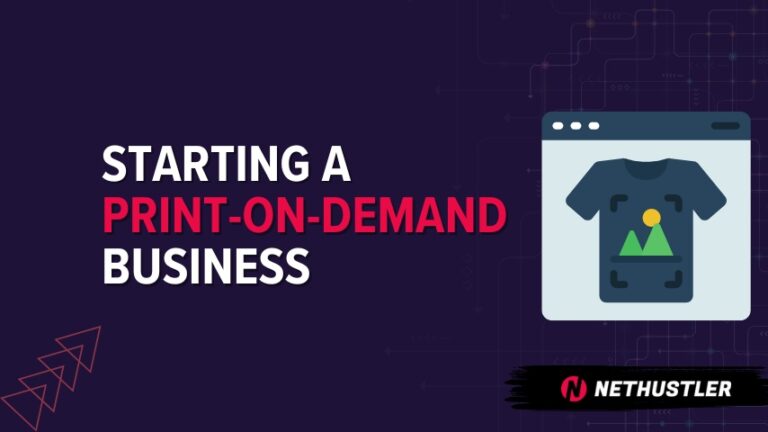
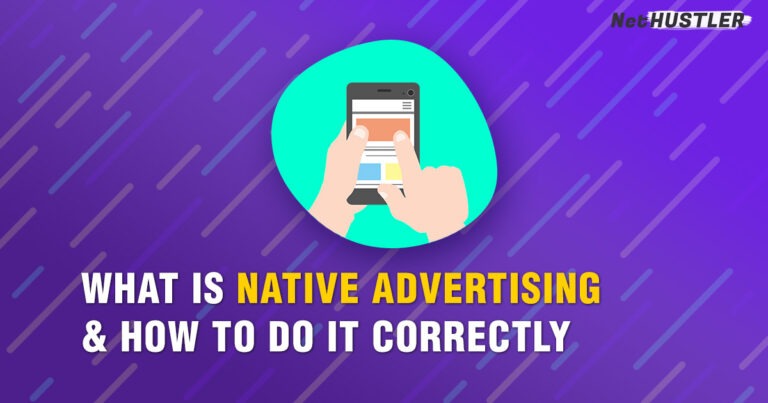
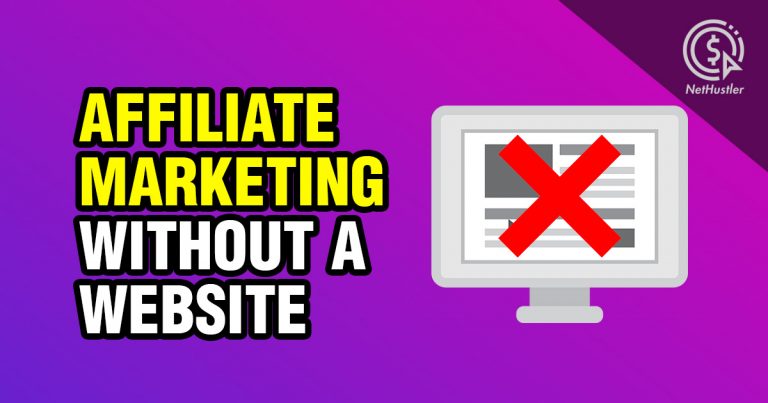
Very useful
Thanks 🙂